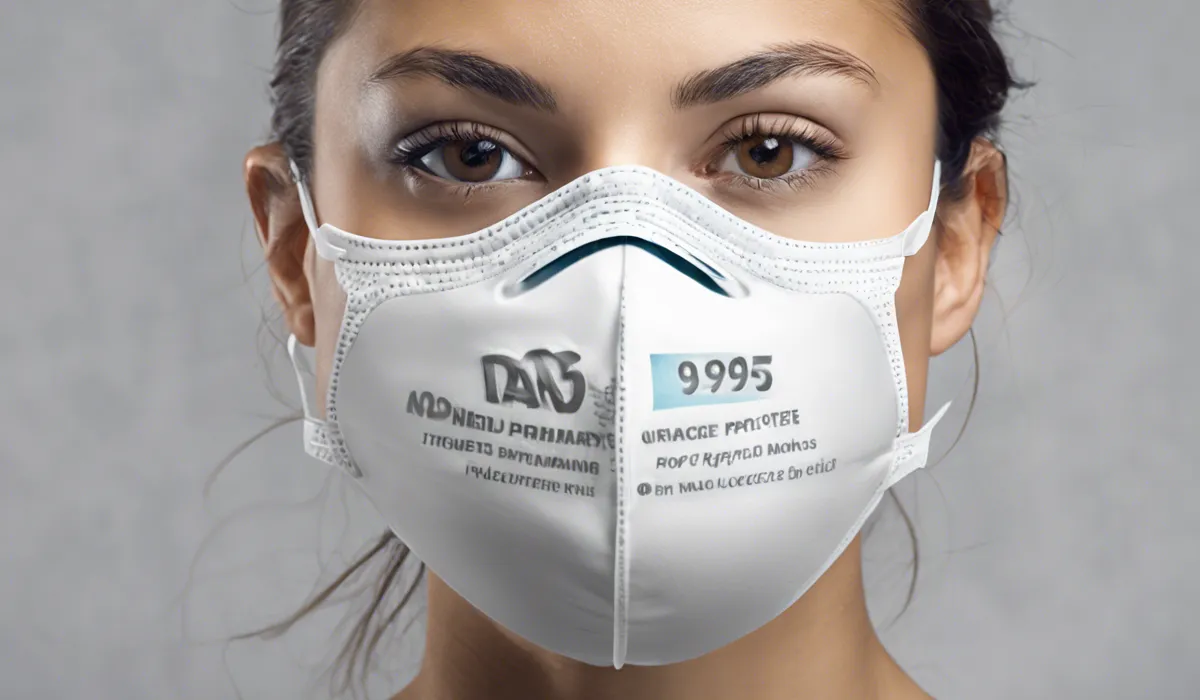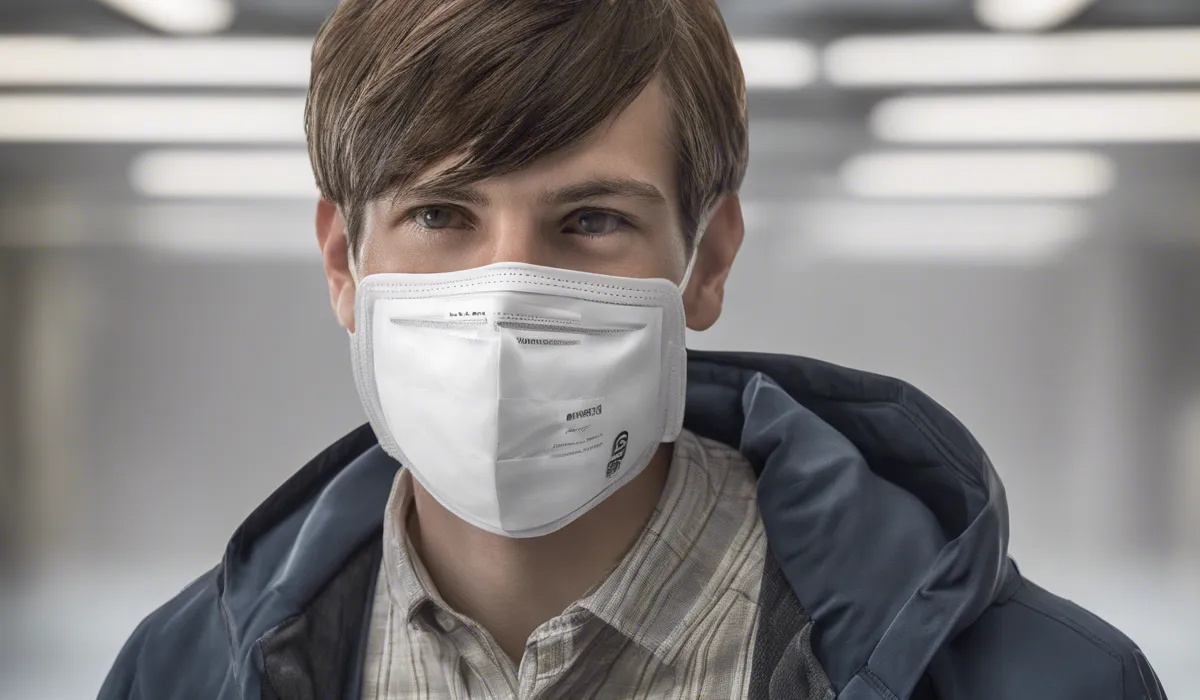N95 masks are effective in protecting against mold as they can filter out particles as small as 0.3 microns. Mold spores typically range from 1 to 5 microns, thus N95 masks can block their inhalation, reducing exposure and potential health risks.
Understanding Mold Exposure and Health Risks

What is Mold?
Mold is a type of fungus that can grow indoors and outdoors. It thrives in warm, damp, and humid environments.
Mold reproduces through tiny spores that travel through the air. Common sources include leaky roofs or windows, pipes, or where there has been flooding.
Mold can also grow in dust, paints, wallpaper, insulation, drywall, carpet, fabric, and upholstery.
Health Effects of Mold
Exposure to mold can lead to health issues, especially for those sensitive to it. Symptoms can include sneezing, runny nose, red eyes, and skin rash.
People with mold allergies may have more severe reactions. Continuous exposure to mold can increase the risk of developing respiratory problems.
Who is Most at Risk?
Individuals with allergies, asthma, or compromised immune systems are more at risk from mold exposure.
Children, the elderly, and pregnant women also need to be careful. People who work in damp environments, like construction workers or plumbers, should also be cautious of mold risks.
When is Mold Protection Necessary?
Mold protection is necessary during mold removal, when cleaning up after floods, or in buildings with poor ventilation.
It’s also advised when working in occupations with high mold exposure risk. In these situations, it is crucial to wear protective gear to minimize health risks.
Features of N95 Masks

Understanding N95 Masks
N95 masks are a type of respirator that filters out particles. They are designed to achieve a close facial fit and efficient filtration of airborne particles.
The ‘N95’ designation means that the mask blocks at least 95% of very small (0.3 micron) particles.
How N95 Masks Filter Airborne Particles?
N95 masks have multiple layers of synthetic material that can trap 95% of particles that are 0.3 microns or larger.
The fibers in the mask layers are electrostatically charged, which helps in attracting and capturing particles as they pass through the mask.
Standards for N95 Masks
N95 masks must meet specific certification standards. In the United States, they are certified by the National Institute for Occupational Safety and Health (NIOSH).
The masks undergo rigorous testing to ensure they filter out harmful particles effectively.
Limitations of N95 Masks
While N95 masks are highly effective, they have limitations. They must fit properly to work, and facial hair can reduce the seal.
N95 masks also do not protect against gas or chemical vapors. They are not suitable for children or those with facial deformities.
Effectiveness of N95 Masks Against Mold

Research on N95 Masks and Mold Spores
Research has shown that N95 masks can effectively filter mold spores. Since mold spores are typically larger than 0.3 microns, N95 masks can prevent most spores from being inhaled.
This reduces the risk of respiratory issues related to mold exposure.
Comparison with Other Masks
N95 masks are more effective at filtering particles than regular cloth or surgical masks. Unlike these masks, N95 masks are designed to fit snugly against the face and have filters that can trap mold spores.
Proper Use and Fit of N95 Masks
For N95 masks to be effective, they must be worn correctly. The mask should be snug against the face with no gaps.
The nose clip should be adjusted to provide a tight seal. Users should perform a seal check every time they wear the mask.
Recommendations for Mold Remediation
During mold remediation, wearing an N95 mask is recommended to protect against mold spore inhalation.
It’s part of the personal protective equipment that should also include gloves and goggles. Professional remediation services are advised for extensive mold problems to ensure safety and effective removal.
FAQs About N95 Masks and Mold Protection
Do N95 masks protect against inhaling mold spores?
Yes, N95 masks can protect against inhaling mold spores as they are designed to filter out particles as small as 0.3 microns, and mold spores typically range from 1 to 5 microns.
Are N95 masks effective in mold remediation?
Yes, N95 masks are considered effective for mold remediation efforts as they can block the majority of airborne mold spores.
Can N95 masks prevent mold-related health risks?
Wearing N95 masks can reduce exposure to mold spores, potentially decreasing the associated health risks.
What size of particles can N95 masks filter out in relation to mold spores?
N95 masks can filter out particles as small as 0.3 microns, making them capable of blocking the inhalation of mold spores, which are typically 1 to 5 microns in size.
Is it necessary to use an N95 mask for casual exposure to mold?
For casual exposure, an N95 mask may not be necessary, but it is recommended for individuals sensitive to mold or when in environments with high mold spore concentrations.
Final Thoughts
N95 masks are efficient in filtering out mold spores, as their capability to block particles as small as 0.3 microns surpasses the typical 1 to 5-micron size range of mold spores.
This characteristic of N95 masks provides substantial protection against mold inhalation, subsequently minimizing related health hazards.
